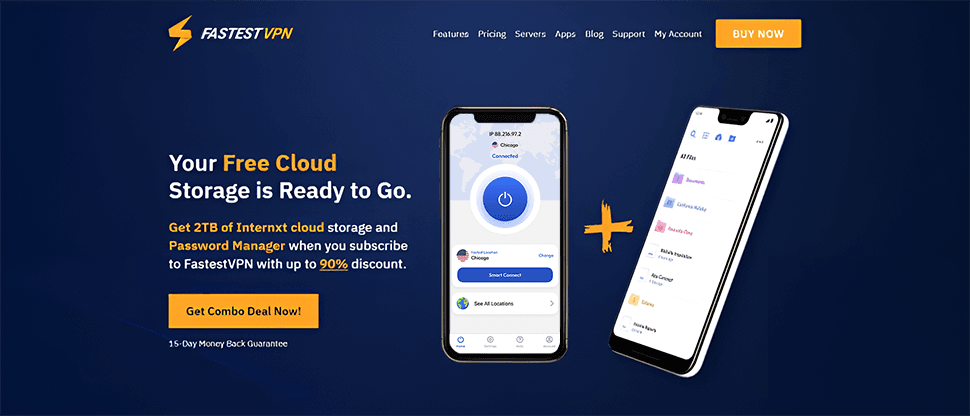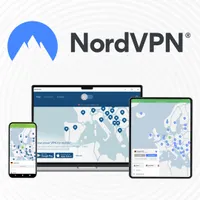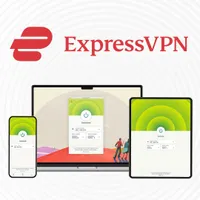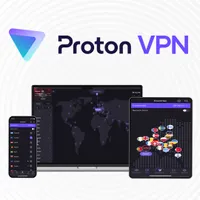TechRadar Verdict
FastestVPN offers decent performance at a budget-friendly price, but it falls short when compared to our top 5 VPNs in areas like speed and server network quality. Worth checking out if you're going to buy into its lifetime plan, though.
Pros
- +
Affordable pricing, especially the lifetime deal
- +
No-logs policy verified by third-party audit
- +
Supports 10 simultaneous connections
- +
App refresh looks significantly better
Cons
- -
Limited server network compared to top competitors
- -
Inconsistent speeds in certain regions
- -
Apps could use more refinement, especially for advanced users
Why you can trust TechRadar
FastestVPN is a cost-effective VPN solution based in the Cayman Islands that offers decent functionality – but isn't up to scratch compared to today's best VPNs. The service has certainly come a long way in terms of privacy and app usability, but it still underperforms when it comes to the size of its server network and feature set.
That's not to say FastestVPN isn't worth considering. A lifetime VPN plan at $40 should be enough to make anyone double-take, but is it worth it?
To give you a better idea of whether FastestVPN is worth your time, I'll go through the security, privacy features, unblocking capabilities, customer support, and overall value for money. Read on and we'll see whether or not FastestVPN lives up to its name.
Features
FastestVPN offers a standard suite of VPN features, along with a few less-common extras.
Starting off with the basics, there's a kill switch built into all FastestVPN apps. This cuts off your internet completely if you lose connection to your VPN, which stops you from falling back onto an unencrypted line when you're browsing the internet. It's useful if you're using the internet at home, but it's absolutely essential if you're on the go and connecting to public WiFi where hackers can read your unencrypted browsing data.
There are two different "tunneling" features available depending on which platform you're using. The Windows and Android apps feature pretty bog-standard Split Tunneling, which allows you to pick which apps are covered by the VPN. It's particularly useful if you're trying to get your bank apps working on mobile.
"Smart Tunneling" is available on iOS and MacOS and lets you pick specific domains that'll be covered by the VPN even when it isn't on. I found I generally had less use for this one.
Other than that, there's not much there. The server selector gives you access to a range of specialized VPN servers, but that's about it. Additional features are paid add-ons, like coverage for extra devices on a single subscription, a dedicated IP, and port forwarding. Admittedly, most VPNs don't provide port-forwarding, but some generous services (like Private Internet Access) offer it for free.
Features score: 5/10
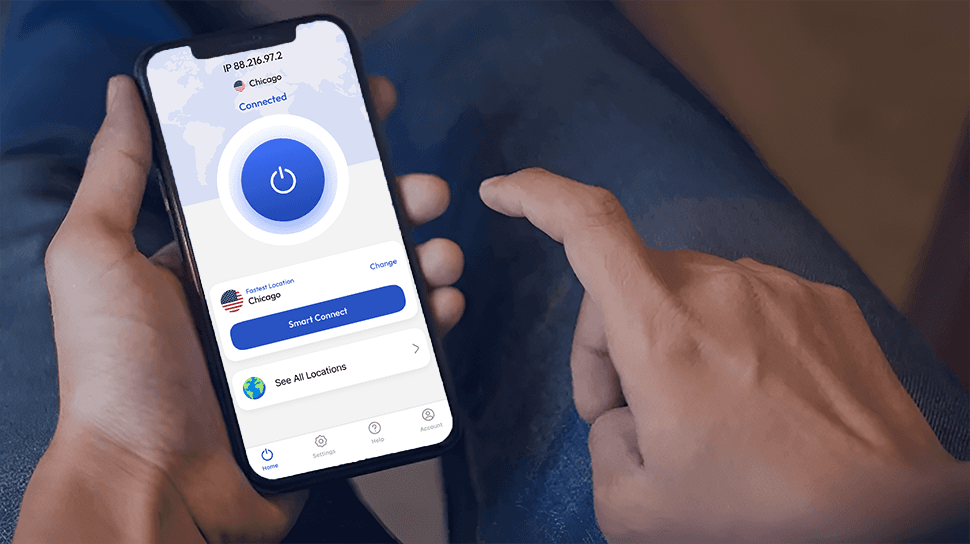
Server network
FastestVPN has over 800 servers spread across 49 countries, with over 100 locations to choose from. While there are plenty of servers across Europe, as well as access to the US, Japan, Australia, and Canada, it's not particularly comprehensive across the Middle East, Africa, or Asia. However, all of the popular streaming locations you'd expect are accessible.
Overall, the location selection is decent, but competitors like ExpressVPN and NordVPN completely outclass it with more than double the number of countries you can connect to.
Server network score: 6/10
Apps
When you jump into the FastestVPN downloads page, you're immediately presented with nearly twenty different platforms to choose from. FastestVPN supports fully-fledged apps on Windows, macOS, iOS, and Android, as well as browser extensions for Chrome and Firefox.
For everything else like routers and TVs, there are setup guides available on the support site. There's a download link for Linux, too, but it just takes you to the features page. You'll have to read the support blog and use a third-party client – which can be tricky if you're not a tech-savvy Linux user.
Apps score: 8/10
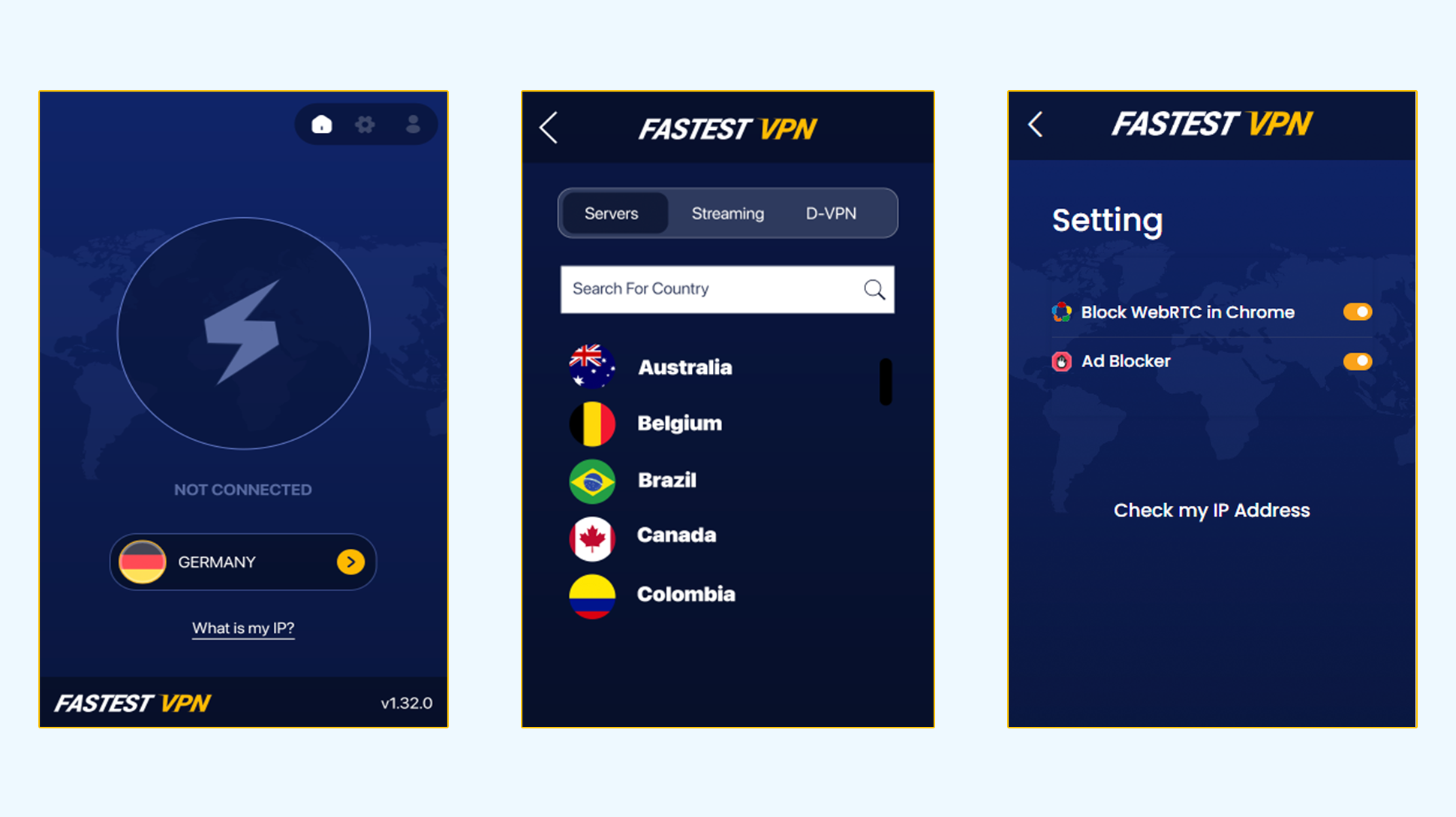
Ease of use
For me, this is where FastestVPN disappoints. When you boot up the VPN, you're immediately presented with the full app. However, trying to actually use it bounces you over to the login screen.
It's slightly confusing, but once you're through it only takes one click to connect to your nearest server. Even though it's easy enough to read and navigate, the actual app looks a little rough compared to some of its closest competitors.
Unfortunately, trying to use FastestVPN for the first time on a Mac testing machine brought up some issues with the app. After trying to connect to the DVPN servers for testing, the app shut down and wouldn't restart even after a reboot. I couldn't replicate this issue on any other platform, but if you're hunting for a bulletproof Mac VPN app, you might need to look elsewhere.
Ease of use score: 6/10
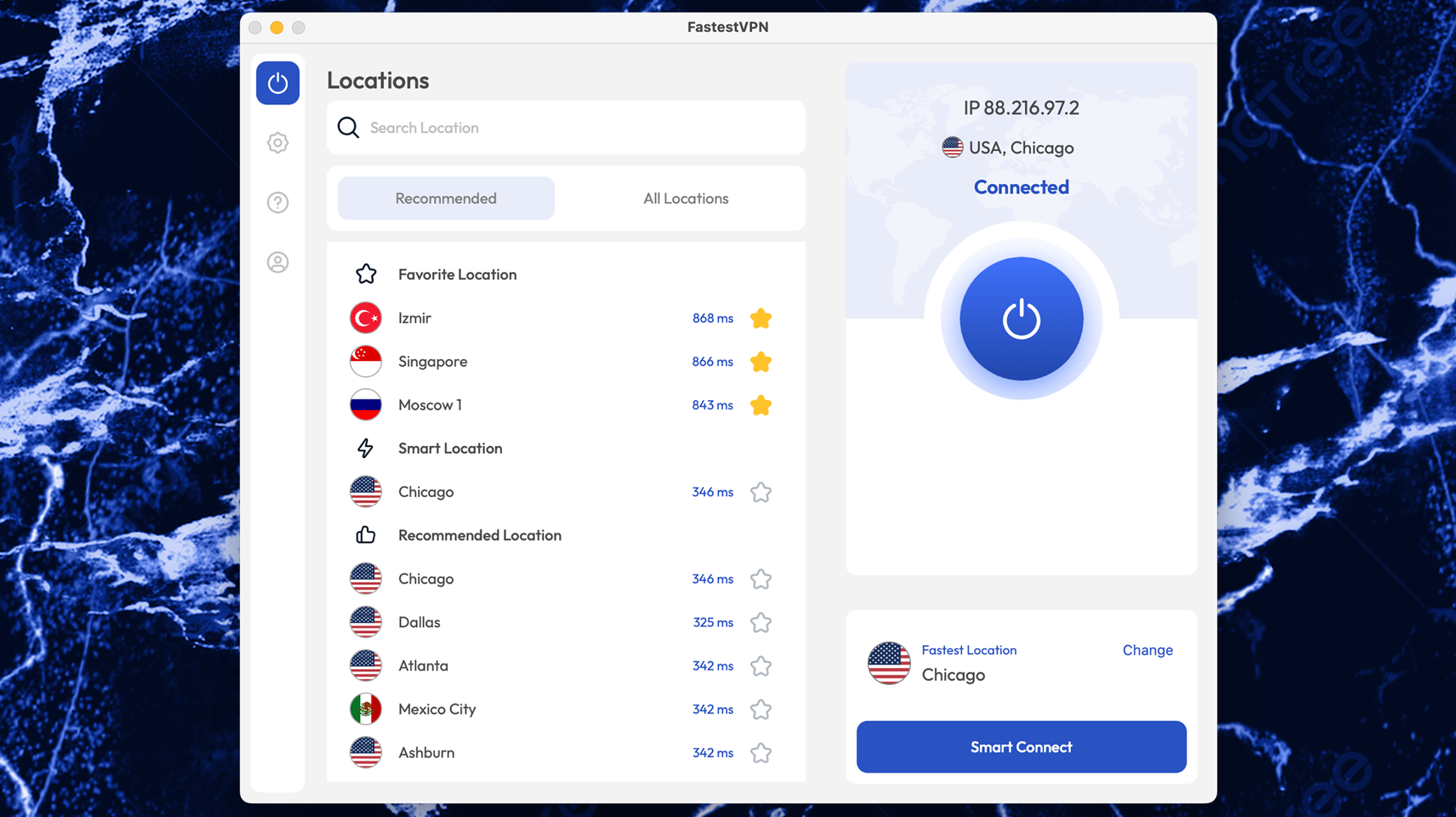
Speed and performance
Despite its name, FastestVPN doesn't quite live up to the "fastest VPN" claim.
Using a 100 Mbps connection with Ookla Speedtest for monitoring, I recorded an average download speed of 58.25 Mbps and 14.82 Mbps upload on my nearby server. Connecting to US East dropped those speeds down to 37.94 Mbps download and 11.89 Mbps upload.
During my tests, I found that download and upload speeds were inconsistent, especially over long distances. While nearby servers in the U.S. and Europe provided solid speeds that easily let me stream shows with no buffering, I found that connecting to servers in Asia and South America delivered significantly lower performance.
These speeds don’t match up to our top VPNs, but they'll still suffice for most activities. If you need a VPN for gaming, torrenting, or HD streaming, then FastestVPN isn't a bad choice.
Speed and performance score: 7/10
Unblocking
FastestVPN might not be the fastest, but it's fast enough to stream high-quality video. That's great because there's plenty you can unblock with its help.
To test a VPN's unblocking claims, we skip all of the marketing material and go straight to testing the top streaming sites. We check out multiple different Netflix regions (the US, Canada, UK, Japan, and Australia) as well as Amazon Prime and Disney+. We even check out some regional providers, like BBC iPlayer and ITV, too.
Everything we threw at FastestVPN worked. Not only did FastestVPN pass all of the usual tests, but it even picked up Hulu and HBO. I didn't encounter any lag or buffering while loading up any of the streams I tried out, which makes FastestVPN an all-around great option as a streaming VPN.
The only downside is that FastestVPN has a smaller location pool, meaning you might be out of luck if you're looking to unblock more obscure streaming providers.
Torrenting also works pretty well on FastestVPN's dedicated P2P servers, and the inclusion of port forwarding means you'll be able to connect to the full swarm whenever you're torrenting.
Unblocking score: 9/10
Privacy and security
FastestVPN doesn't have the extensive suite of security tools you'd see from a provider like NordVPN or Surfshark, but it does cover all of the privacy basics.
The VPN protocols offered across FastestVPN's apps are all secure, using AES-256 encryption on IKEv2, OpenVPN, or WireGuard.
Digging into FastestVPN's privacy policy revealed that the VPN commissioned its first no-logs audit last year from Altius IT, a California-based auditing company with over 30 years of experience.
The full report makes for illuminating reading. You can check it out yourself via the provider's site and the link included at the bottom of the page. The only information FastestVPN logs is the date you connect to the VPN service and your email address.
Even if law enforcement does come asking for the little information that FastestVPN holds onto, it's headquartered in the Cayman Islands. This puts it far outside of the jurisdiction of Five Eyes nations while retaining strict data laws with a national data privacy policy comparable to GDPR.
Privacy and security score: 8/10
Customer support
FastestVPN offers 24/7 live chat support as the first port of call for any technical issues. All of the support staff I contacted via live chat were supportive and helpful, although I was sometimes left waiting around a while for a response. Email support is available, though slower than live chat, typically responding within 24-48 hours.
The knowledge hub is well-organized, containing useful tutorials and FAQs for common issues. There's also a pretty comprehensive set of manual setup guides if you're trying to get FastestVPN working on a router or Linux.
The only issue here is that the site itself looks slightly archaic, and some of the articles mentioning older protocols are clearly outdated.
Customer support score: 8/10
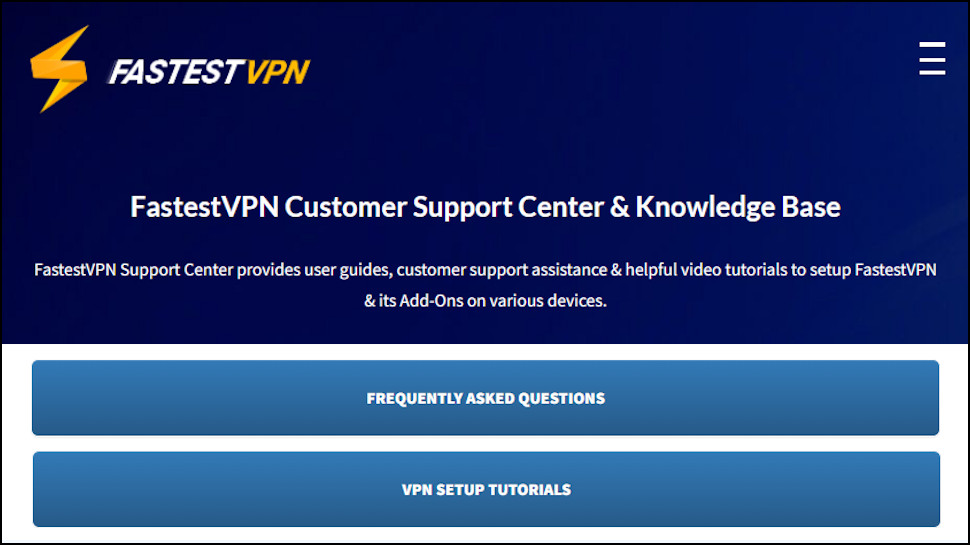
Track record
For a vendor with nearly a decade of experience, FastestVPN has a relatively uneventful history.
No traffic breaches, no huge exploits, no scandalous lawsuits. Instead, it's a VPN that has been slowly but steadily reinventing itself over and over into what is now a decent service. Maybe it isn’t at parity with top-tier VPNs, but WireGuard integration and a no-logs audit put it above a big chunk of the industry.
However, FastestVPN's reviews don't quite paint the same story. Some of the reviews I read complain about the lifetime plan running out or having other subscription issues, although it seems like the support team is pretty good at catching these complaints and rectifying them.
Track record score: 8/10
Pricing and plans
FastestVPN is one of the cheapest VPNs I've seen. The monthly plan is more affordable than most discounted VPNs at $5/month, but the annual plan brings the price down even further to $1.66/month. This is absolutely fantastic value for a VPN that covers the basics, but FastestVPN goes one step beyond.
It offers a lifetime plan priced at $40 which seems to truly be unlimited. I will point out a caveat here though. Some of the reviews I've seen mention that previous lifetime plan users had to pay for an upgrade to keep feature parity when FastestVPN implemented new features, so although you’re getting everything that FastestVPN offers for the moment, that might not always be the case.
Nevertheless, all plans come with a 31-day money-back guarantee, ensuring flexibility if you decide the service isn't for you.
Pricing and plans score: 9/10
Should you use FastestVPN?
FastestVPN is a strong budget option for those looking for basic security, privacy, and content unblocking without breaking the bank. It's not the fastest VPN, despite its name, and it doesn't have the largest server network. That said, its affordability and core privacy features make it a solid choice for if you're a casual VPN user who's willing to compromise on some performance for a significantly lower price point.
However, if you require a VPN with high-speed performance, global streaming access, or advanced security tools, premium services like ExpressVPN or NordVPN may be better options.
FastestVPN alternatives
1. NordVPN – from $3.09 per month
The best VPN overall
There's no better VPN in the industry if you need a fast and secure provider with global server access. With a variety of security and performance features, including a built-in virus scanner and double-hop servers, NordVPN is great value for money.
2. ExpressVPN – from $6.67 per month
The best VPN for beginners and the most secure
ExpressVPN offers fantastic blocking capabilities with a nearly unparalleled set of locations to choose from. ExpressVPN guarantees high-speed obfuscated connections with its own proprietary VPN protocol, Lightway, as well as a high-quality server bank and audited no-logs server technology.
3. Proton VPN – from $3.99 per month
A superb all-round VPN and online security alternative
Proton VPN is the best free VPN out there, with a truly unlimited bandwidth plan across three different locations. Built by the minds behind Proton Mail, Proton VPN also provides a range of privacy-first features which make it a great choice if you're concerned about your internet data. The standout of these is Secure Core, which allows you to chain your VPN connection through multiple servers for better security.
FastestVPN FAQs
Are all VPNs required to have a no-logs audit?
No, most VPNs do not provide proof of a no-logs audit. FastestVPN is one of the few VPNs on the market to have contracted a third party to audit its privacy policy.

Sam Dawson is a cybersecurity expert who has over four years of experience reviewing security-related software products. He focuses his writing on VPNs and security, previously writing for ProPrivacy before freelancing for Future PLC's brands, including TechRadar. Between running a penetration testing company and finishing a PhD focusing on speculative execution attacks at the University of Kent, he still somehow finds the time to keep an eye on how technology is impacting current affairs.
